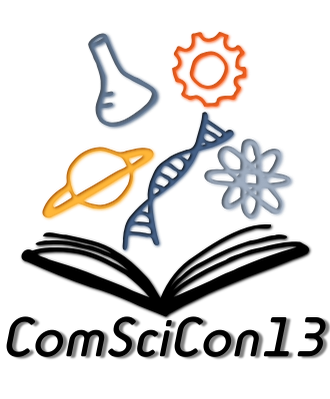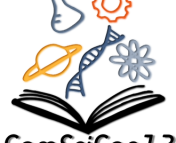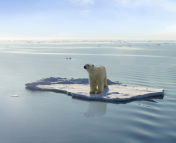 Welcome back to Day 2 of Astrobites live blogging of the Communicating Science Workshop! Check out yesterday’s post for a rundown of all the great stuff we did on Thursday. As a reminder, this is a gathering of about 50 graduate students coming together to listen and interact with expert panelists, meet each other, and learn how to communicate science better. To prevent inundating your RSS feeds, we will be updating this post throughout the day with all the great things we are doing. So check back regularly!
Welcome back to Day 2 of Astrobites live blogging of the Communicating Science Workshop! Check out yesterday’s post for a rundown of all the great stuff we did on Thursday. As a reminder, this is a gathering of about 50 graduate students coming together to listen and interact with expert panelists, meet each other, and learn how to communicate science better. To prevent inundating your RSS feeds, we will be updating this post throughout the day with all the great things we are doing. So check back regularly!
As before, check out #comscicon on Twitter or our Storify if you want to get up to the minute updates. We will be posting some longer thoughts here.
Session 6: World of Non-Academic Publishing
Our panelists this morning: Marica Bartusiak is a professor and Executive Director of the Graduate Program in Science Writing at MIT. Eugenie Samuel Reich is a science writer based here in Cambridge. Daniel Engber is a science writer and columnist for Slate. Our panelists will be offering their thought on publishing in forums such as books, blogs, and magazines.
One of the main differences is that for the non-academic press, they are looking for articles and stories that will grab the attention of readers. The story is what sells copies. In contrast, academic publishing is focused instead on presenting accurate results. Both of the writers spoke about the need for perseverance and luck to break into the field of science writing. Look for the smaller outlets to build up your portfolio. You must work your way up.To a certain extent, science writing and science research are done in similar ways. You must make a pitch to editors about a story to get accepted then get an article published. When you are making this pitch, you need to know the point of the story. Editors want to see how readers will become engaged.
Graduate science writing programs can help aspiring writers learn how to do these things. Pitches, editing, different media types, and networking are all covered. The opposing view is finding internships writing science. These help you learn the skills you need on the job. Regardless of if you get a graduate degree, networking is vital to success as a science writer.
Session 7: Communicating using Multimedia and the Web
The final session! Oh no!
After this, we will divide into small groups where our expert panelists will review (i.e., rip apart) the pieces we’ve been writing since last night. Earlier today, we spent an hour in peer-review, reading other attendees work and revising our own. Hopefully, much of what people write here, in some form, will be published in various venues!
We have three panelists: Rob Lue, a professor at Harvard and director of the Bok Center for Teaching and Learning; Tom Levenson, professor and director of the program in science writing at MIT; and Kelle Cruz, professor at Hunter College and founder of astrobetter.com.
Prof. Lue showed us his biochemical visualization techniques, which he uses to illustrate important concepts, memorably. Watch them!
Prof. Levenson reminds us to focus on two things above all else in our writing: audience and intention. You need to learn from your audience; they might not want what you expect. You shouldn’t think your audience is dumb; they just don’t have your special knowledge. He showed us a video that he made about fusion within stars. Because the video was so-well produced and the visuals are so memorable, we might actually remember the scientific point. Also, because such high-quality work is possible, our audiences expect it.
Prof. Cruz described astrobetter, which is a bit like the Lifehacker of professional astronomy. She points out that most astronomers have to teach themselves a large set of skills (mentoring, surviving graduate school, teaching Astro 101, etc.). Why not have a resource about these skills, so we don’t waste a huge amount of effort struggling individually? This is a particular boon for people at smaller institutions. Also, people might need to be reminded that we can be doing things better!
Panelist Review of Writing
The day wrapped up by having the panelists review attendee writing. This morning, all attendees peer edited their articles and quickly revised them. This afternoon, our panelists met in small groups to offer feedback on the writing.


